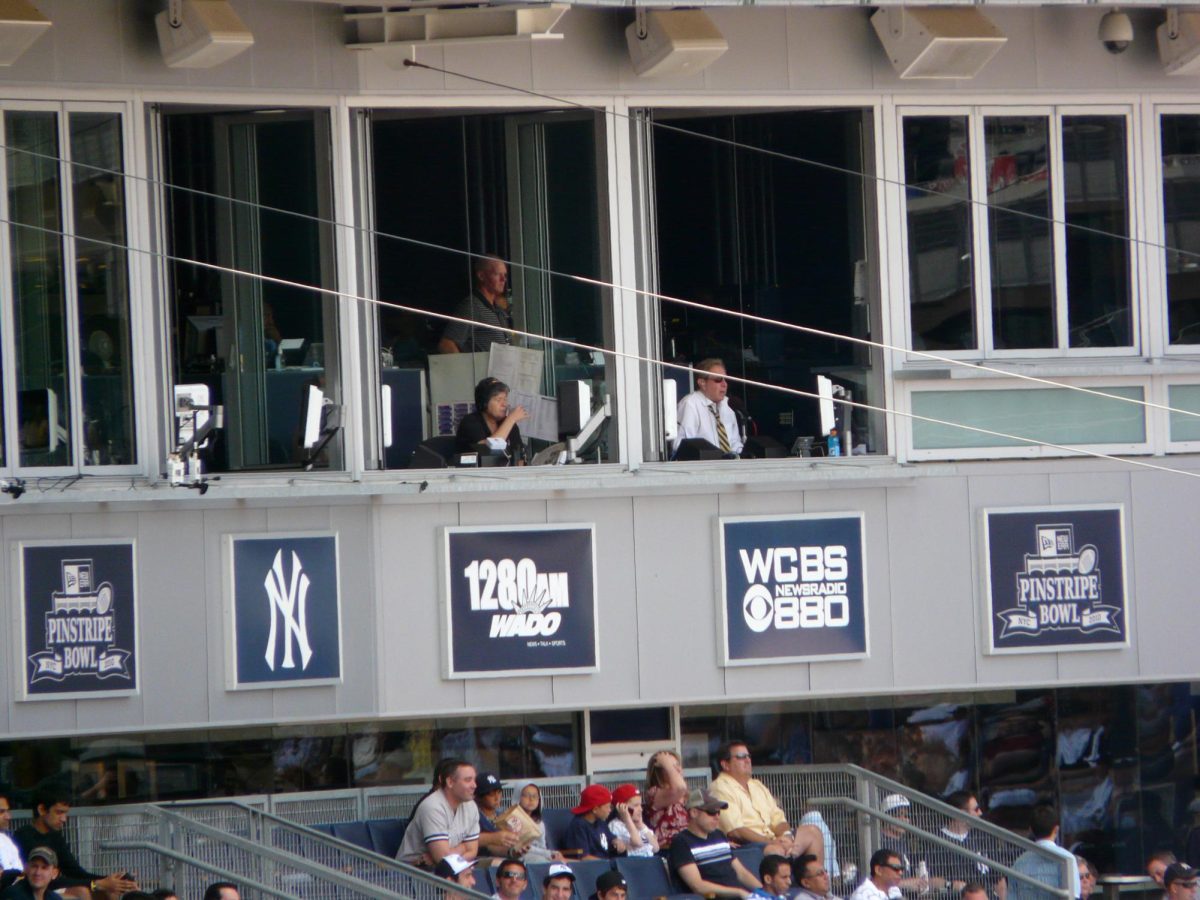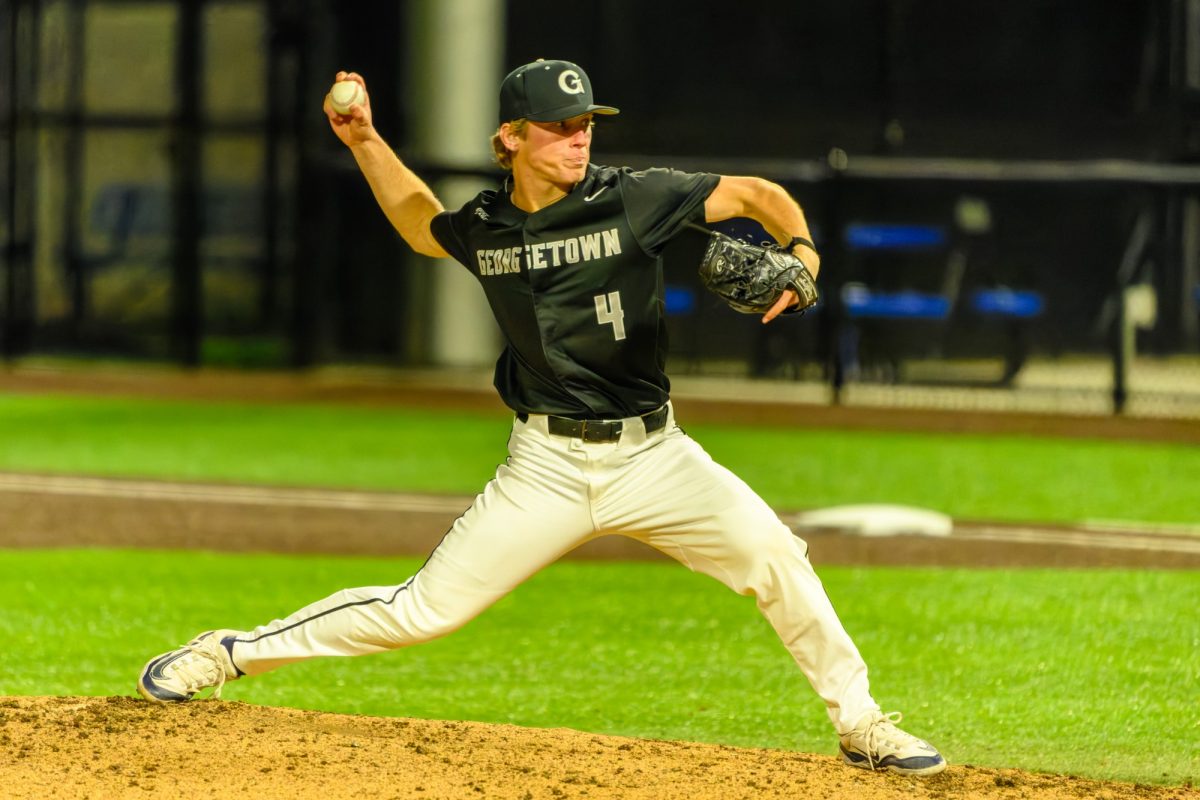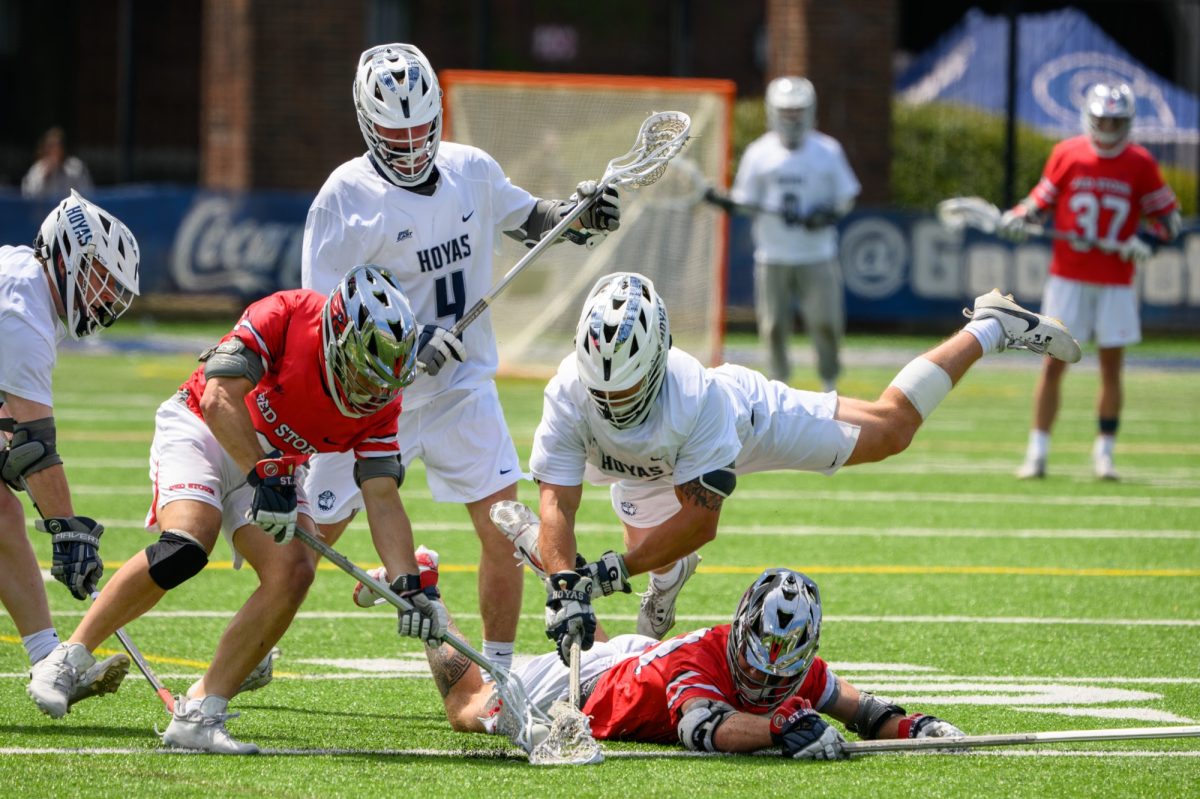My beef today is with both the NFL’s executives in their handling of big hits this season and the players’ reaction to the new rules about hitting.
Two weekends ago, big helmet-to-helmet hits resulted in seven players leaving games with head injuries. For years now, these hits have been glorified and promoted by everyone who watches football. When the media isn’t showing touchdowns, interceptions or long field goals in highlights, they’re showing big hits. The conventional thinking on defense is that in order to get recognized you have to be able to knock a guy out.
This type of thinking was exemplified two weeks ago in the Steelers’ game against the Browns by Steelers’ linebacker James Harrison. In that game, Harrison knocked not one, but two players out of the game (Josh Cribbs and Mohamed Massaquoi) with big helmet-to-helmet hits. Although the hit on Cribbs was deemed legal, the shot that knocked Massaquoi out of the game earned Harrison a $75,000 fine from the league office. In response, Harrison contemplated retirement for a day, concerned that he couldn’t “actually play by NFL rules and still be effective.”
Here’s the thing: Big hits do not make a defensive player more effective – tackles do. If Harrison does not think he can tackle someone without taking their head off, then he shouldn’t be playing in the National Football League. Harrison’s not alone, though; in this day and age, defensive players rarely wrap up players, instead choosing to just run into them, in hopes that they will go down.
Proper tackling involves wrapping up a guy with your arms. James Harrison did not wrap one guy up when he made his hits. Patriots’ safety Brandon Meriweather was fined $50,000 for a helmet-to-helmet hit on Ravens’ tight-end Todd Heap and Falcons’ cornerback Dunta Robinson was also fined $50,000 for a hit on Eagles’ wide receiver DeSean Jackson that left both Robinson and Jackson concussed. These aren’t tackles – they are egregious and unnecessary hits.
any defensive players have been crying about these new rules punishing their big hits, arguing that the NFL is looking out too much for offensive players. Dolphins’ linebacker Channing Crowder stated, “They want to save the receivers and quarterbacks because they sell all the jerseys. They don’t give a damn at all about defensive players.”
In addition to the anger about the NFL protecting only players that are marketable, many are angry because they believe they’ll be forced to play the game with more restrictions than offensive players. Buccaneers’ defensive end Stylez White said, “You’re trying to switch up how people hit. Well then, how about telling running backs not to run hard.”
These feelings of under-appreciation by the defense are understandable, but it is still clear that defensive players do not realize that tackling does not necessarily mean making big hits. In addition to his remark about marketable offensive players, Channing Crowder later went on to say, “They give me a helmet, I’m going to use it.” James Harrison said, “I don’t want to injure anybody. … I try to hurt people.” A helmet is for safety, not for use as a weapon, and the point of a tackle is not to hurt the opposing player – it’s to bring him down. The proven way to do that is to wrap a guy up, not lead with your helmet. Although some players argue that it will be tougher to separate the player from the ball this way, the fact of the matter is players putting their shoulders into the ball while wrapping a ballcarrier up will be more likely to force a fumble than banging helmets.
Football is a violent sport, but one thing that it should not be is a dirty sport. If all football is today is guys taking cheap shots at one another, then players may want to re-evaluate the reckless abandon with which they play the game.
Instead of the players taking action, the NFL is doing so. Big fines were handed out to guys who made big hits. Some of these fines were questionable though, mostly because the NFL’s handling of the situation has been questionable itself. Just a few weeks ago, players were being praised for big hits, and now they are being punished for them. The NFL is trying to do the right thing in protecting its work force, but it is going about it in the wrong way.
First, there is what the NFL deems punishable in terms of hits, defined as “head shots” and “egregious and elevated dangerous hits,” according to Ray Anderson, the NFL’s executive Vice President of football operations. Banning head shots is understandable and the rule’s wording is clear, but the phrase “egregious and elevated dangerous hits” is about as vague as you can get. Instead of putting in legislation that clearly defines what is and what is not allowed, the NFL instead plans to play it by ear and fine and punish players when it sees fit. The problem with this is that players have been participating in hard-hitting football for years now, and the NFL has been profiting off of it, and even encouraging it through videos such as “The NFL’s Greatest Hits.” Now, all of a sudden the NFL is going to ban these hard hits? Players may be overreacting to how difficult it will be to make good quality tackles instead of the big hits they usually make, but that does not mean that the NFL should have the right to immediately start penalizing and suspending guys on an ad hoc basis for hits that were legal and commended just a few weeks ago.
Instead of immediate action, the NFL should instead undertake the task of changing the atmosphere of football, by first starting with the coaches, from pee wee football all the way to the NFL.
Guys hit the way they do because that’s the way they have been told to hit since they were young. The NFL and its Players Association have to make everyone aware of what kind of terrible effects theses type of hits can have on players in addition to giving strict guidelines as to what is and what is not acceptable. Although Commissioner Roger Goodell has to give the process time, both coaches and players also have to be involved in helping to change the game and the way it is played. This way, the progress made will actually be sustainable.
The faster defensive players realize that excessive hits and rule-breaking violence need to be taken out of the game, the better. That said, the NFL can’t just pick and choose which hits they will suspend and fine players for and which they won’t. There needs to be strict guidelines put in place by the NFL. This isn’t a problem that can be fixed by just slapping a couple of fines on players; the atmosphere of the game has to be changed for good, and that’s the responsibility of the executives, the coaches and the players.
Alex Lau is a sophomore in the College. WHAT’S FOR DINNER appears every third issue of HOYA SPORTS.”








